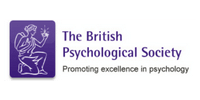Transactional Analysis Therapy
Transactional Analysis can be considered a powerful therapeutic tool which enables practitioners to understand the human mind and its processes. In many situations, it is not just about understanding issues but also finding solutions for them in the roles we learned to adopt as children.
This therapy approach can be used in various contexts including psychological counselling, mental health care and occupational therapy; however, the overall approach usually follows a similar pattern. It involves listening to the clients, conducting interviews, and carrying out assessments, as well as analysing their personal history.
If you are looking for help in understanding your issues or if you have tried many other methods without success, TA may be able to offer new insights into managing your problems effectively.

What is Transactional Analysis?
The transactional Analysis model of the human mind is based on the premise that people are born with a natural tendency to seek out new experiences and form relationships. However, as they grow older, this need for interaction and independence gradually declines due to conditioning from society, family and others around them.
Berne’s theory of transactional analysis though still a psychoanalytic theory believes that insight can be better discovered through analysing a client’s social transactions.
Eric Berne, the psychiatrist who developed Transactional Analysis, identified three different ego states that people operate from:
Parent Ego State (P), Adult Ego State (A) and Child Ego State (C).
He believed that most of our behaviour is driven by these ego states, which are further subdivided into two types:
Nurturing (N) and Controlling (C).
The first type, Nurturing Parent, is focused on the good of the child and takes care of their needs; while Controlling Parent is more about controlling and disciplining them. Similarly, Adults are either Secured (S) or Non-Secured (NS) in nature depending on whether they have learnt to deal with their problems effectively or not. Children, on the other hand, are either Natural (N) or Adapted (A).
Berne further suggested that people tend to move between these different ego states depending on the situation they find themselves in. For instance, a person may operate from the Nurturing Parent state when they are taking care of their child; or from the Child state when they are experiencing strong emotions such as anger.
To help clients learn to better understand their issues and cope with them through Transactional Analysis, therapists will typically focus on some common counselling techniques. These include offering support and guidance as well as developing new insights into their behaviour patterns and how these may be affecting their lives. Transactional Analysis has been found to be particularly helpful in addressing issues like low self-esteem, communication difficulties and relationship problems.
The main premise behind TA is to help individuals rediscover their true selves by becoming more conscious of their feelings, thoughts and behaviour from different perspectives and resolving conflicts between these disparate aspects.
How does Transactional Analysis Therapy Work?
The transactional Analysis model comprises of three key concepts – ego states, transactions and scripts.
Ego States
Ego states refer to the different parts or aspects of a person’s personality. There are three ego states in total – Parent Ego State, Adult Ego State and Child Ego State. The Parent ego state is further divided into two sub-types – Controlling Parent and Nurturing Parent.
Parent Ego State:
People in this ego state are driven by values and beliefs that they have learnt from their parents or society. They tend to assume the role of being a ‘parent’ in relation to other people, even if they may be very different in age.
Adult Ego State:
This refers to the part of you that is fully aware of your present state and is focused on taking care of your needs. It allows you to take an objective stance and analyse a situation using facts and logic rather than emotions or morals.
Child Ego State:
This ego state refers to the part of you that experienced childhood – either in a happy or tumultuous manner. People in this state are driven by their wants and needs, and they may act impulsively or irrationally as a result.
Transactions
Transactions are the back-and-forth exchanges that take place between people when they are interacting with each other. These can be verbal or non-verbal in nature, and they usually involve two ego states. For instance, a transaction between a Parent ego state and a Child ego state may involve the Parent telling the Child what to do, while a transaction between an Adult ego state and a Child Ego State can involve trying to reason with the Child in an attempt to change their behaviour.
There are four types of transaction – complementary, crossed, ulterior and circular.
- Complementary transactions are those in which both parties respond in a way that is consistent with their ego state. For example, a parent talking to their child in a nurturing way.
- Crossed transactions occur when the response is not consistent with the ego state. For example, a parent responding to their child in a critical way.
- Ulterior transactions involve hidden agendas or motives and can be either complementary or crossed.
- Circular transactions are those which keep going around in circles without any resolution.
- Scripts
Scripts refer to the unconscious rules that people have about how they expect things should be done or how they should behave in certain situations. These scripts are usually learnt in childhood and can have a powerful influence on the way we interact with others and make decisions in life. For instance, someone who has a ‘perfectionist’ script may always strive to be perfect in everything they do, even if it means making themselves unhappy in the process.
Therapists will typically help their clients identify and understand the scripts that they are following in order to change these if required. They may also work on changing the client’s inner dialogue or helping them explore new ways of reacting to certain situations.
Benefits of transactional analysis therapy
Overall, transactional analysis is a powerful and versatile therapeutic approach that can help people to overcome a wide range of psychological challenges and achieve greater happiness and well-being in their lives. For example:
1. It can help you to better understand yourself and your relationships with others.
2. It can help you to resolve conflicts and improve communication.
3. It can help you to identify and change any negative patterns of behaviour.
4. It can help you to develop a more positive outlook on life.
5. It can help you to manage stress and deal with emotional difficulties more effectively.
6. It has been shown to be effective in treating a wide range of mental health conditions, including depression, anxiety, phobias, eating disorders and substance abuse.
What happens in a Transactional Analysis session?
During a typical Transactional Analysis therapy or session, the therapist will work with you to identify the internal scripts or rules that are driving your thoughts and behaviours. This can involve exploring past experiences and identifying unhelpful patterns of thinking or behaviour.
The therapist may also help you to change your inner dialogue, develop new coping strategies and explore ways in which you can react differently to certain situations. If necessary, the therapist may also work with you on resolving any conflicts that may be present in your life.
What conditions does Transactional Analysis help with?
While the success of Transactional Analysis therapy largely depends on a number of factors including client characteristics and treatment methods used, it has been found to be an effective approach in various settings. It has been used to treat conditions like depression, anxiety, phobias, relationship difficulties, eating disorders and substance abuse.
Transactional Analysis therapy is a highly effective approach that can be used to help individuals overcome a wide range of psychological problems. If you think that this approach may be right for you, please do not hesitate to contact us for further information or to book an appointment.
If you are struggling with an anxiety disorder, it is important to seek professional help. There are many resources available to help you get the treatment you need.






